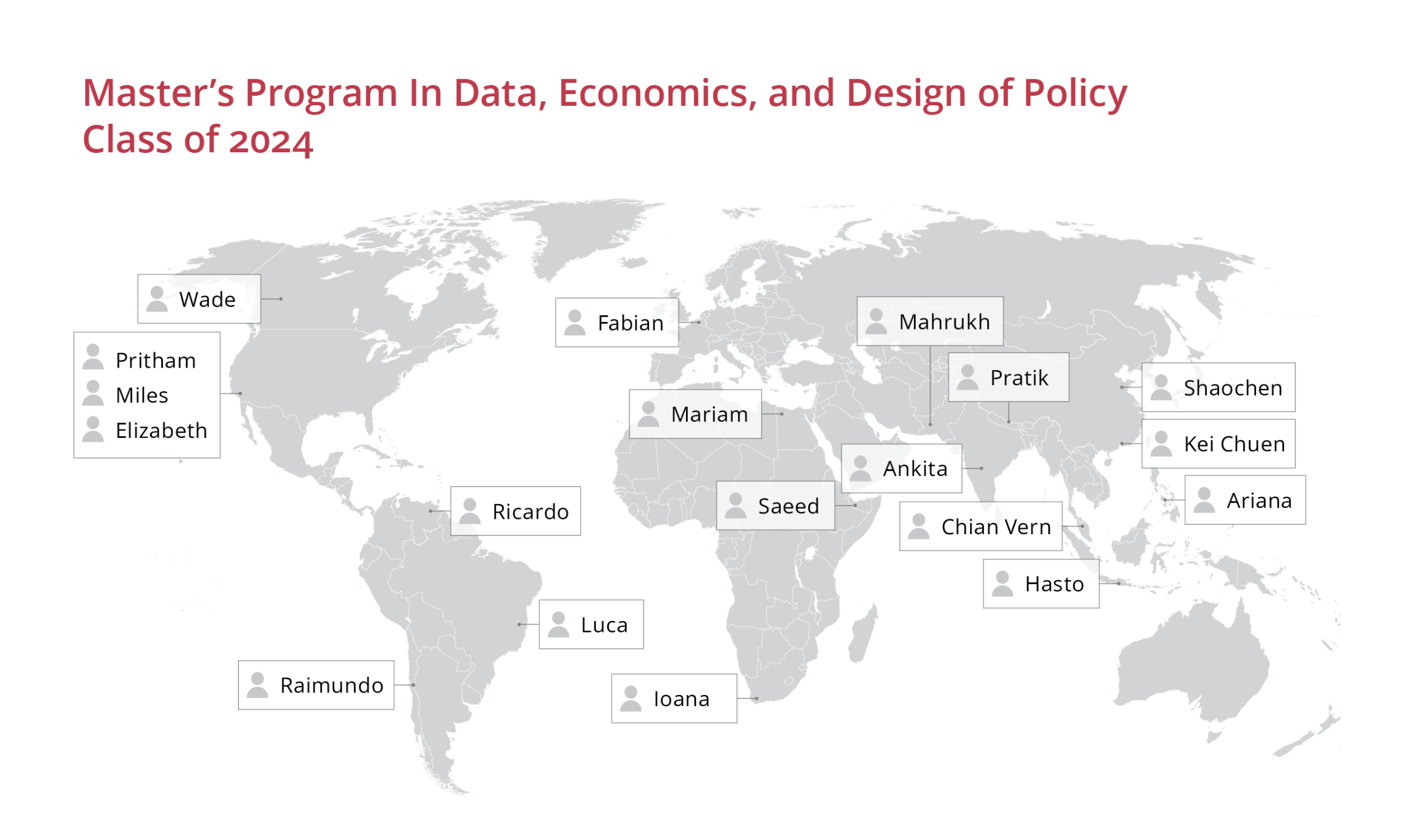The fight against poverty and inequality is more data-driven than ever before. Producing and understanding rigorous evidence has become increasingly critical for those seeking to affect change globally, but opportunities to acquire these skills remain limited. As the first master’s degree to be offered by MIT’s Department of Economics, the Data, Economics, and Design of Policy (DEDP) program is designed to meet this rising demand. Jointly run by the Economics Department and the Abdul Latif Jameel Poverty Action Lab (J-PAL), the program equips development professionals from across the globe with the practical skills and theoretical knowledge needed to tackle some of the world's most pressing challenges.
Our program draws students with a wide range of backgrounds. Whether they focus on policy, practice, or further academic study, our graduates go on to impactful careers in the development sector and government.
The DEDP program offers two tracks. The International Development Track allows learners to apply the tools acquired through the core courses to explore development issues that are most prevalent in low- and middle-income countries experiencing massive and persistent poverty.
The Public Policy Track will also require learners to rely on the tools acquired through the core courses, but to address a range of public policies, including both local issues and those that transcend geographic boundaries.

